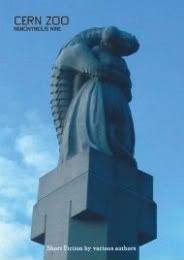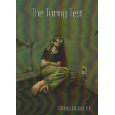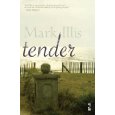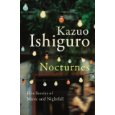 Nemonymous, that annual extravaganthus of unattributed fiction curated by Des Lewis, returns for a ninth outing. As ever, the authors involved are listed only on the back cover; they are: Rosalind Barden; Gary McMahon; Amy Kinmond; Tim Nickels; Bob Lock; Lesley Corina; Jacqueline Seewald; Dominy Clements; A.J. Kirby; Brendan Connell; Daniel Ausema; Gary Fry; Mick Finlay; Robert Neilson; Steve Duffy; Geoff Lowe; Stephen Bacon; Rod Hamon; Lee Hughes; Lyn Michaud; Tony Lovell; A.C. Wise; Roy Gray; and Travis K. Weltman. But as to who wrote what, we can only guess for now.
Nemonymous, that annual extravaganthus of unattributed fiction curated by Des Lewis, returns for a ninth outing. As ever, the authors involved are listed only on the back cover; they are: Rosalind Barden; Gary McMahon; Amy Kinmond; Tim Nickels; Bob Lock; Lesley Corina; Jacqueline Seewald; Dominy Clements; A.J. Kirby; Brendan Connell; Daniel Ausema; Gary Fry; Mick Finlay; Robert Neilson; Steve Duffy; Geoff Lowe; Stephen Bacon; Rod Hamon; Lee Hughes; Lyn Michaud; Tony Lovell; A.C. Wise; Roy Gray; and Travis K. Weltman. But as to who wrote what, we can only guess for now.
The stories in Cern Zoo are a nicely eclectic bunch; this is true not only of their subject matter, but also of their relationships to the anthologys title, which range from close to non-existent (as far as I could see). Some tales take inspiration from CERN and the Large Hadron Collider, such as ‘Being of Sound Mind’, whose retired narrator finds one day that a young girlk has inexplicably appeared in his house. He tries to work out what’s going on, whilst struggling against the tide of suspicion — and we readers have our own bit of detective work to do, to understand why the narration switches between first- and second-person. I think it’s fair to say that CERN aspect feels a little ‘tacked on’ (though it’s necessary for the story); but the rest is beautifully disorientating — to the very end, we can’t be sure whether all this is just in the narrator’s mind.
Other contributors base their stories around zoos. ‘The Lion’s Den’ tells of strange happenings in a zoo, beginning with a boy throwing himself into a lion enclosure. Of course, he’s set upon and killed — but no trace of him remains, not even a speck of blood. Then the lions are seen outside their enclosure, in places where it would be impossible for them to be — and so on. The zoo-related material in this story is fascinating; if based on actuality (as I assume it is), it reveals aspects of working life in a zoo that I had never really considered. And the events of the plot — and their implications — are powerful, all the more so because they remain mysterious.
Some of the tales use the image of chalk figures like the Cerne Abbass giant. One such story is ‘The Rude Man’s Menagerie’, in which Rebs, working on the remains of her late father’s Michigan tree farm, discovers the chalk figure of a man who appears to have drawn various animals to himself. The man appears malevolent, and Rebs resolves to free the animals — but how? This is a satisfying piece of fantasy that runs on its own internal logic; by the time reality comes gently free of it moorings, one is happy to go along.
In still other stories, ‘Cern Zoo’ (if it features at all) is really just a name. ‘The Ozymandias Site’ takes us to the Moon, where some future species (from the world of Cerne) has travelled to investigate the ‘giant leaping creature that once accompanied [them] in the universe’. No prizes for guessing that we are those long-gone beings; and the expressions of human folly in the story are rather unsubtle. But what makes this talew shine is the way it’s told, as it takes you into the minds of these strange creatures who have five-part personalities in the same body. I don’t think I grasped ‘The Ozymandias Site’ fully (understandable, I think, given the manner of telling!), but the journey was worthwhile regardless.
‘The Devourer of Dreams’ is another story whose voice is the star attraction. A successful writer looks back on his childhood in post-war Suffolk. His father, an innkeeper, suddenly developed a talent for writing, and produced several best-selling books. One day, the boy discovered the macabre secret behind this turn of events — a secret he went on to exploit himself. The plot of this tale is, to be honest, nothing particularly special; but the narrattion certainly is. The author pulls off a difficult balancing-act, creating a voice which convinces as that of someone (albeit elderly) living in the present day, yet has enough of a Lovecraftian touch to give ‘The Devourer of Dreams’ the menacing atmosphere of an old weird-fiction tale.
Last year, I reviewed the previous Nemonymous anthology, Cone Zero (you can read that review here), and thought it excellent. Good as some of the stories are in the present volume, I would say that the overall quality of Cern Zoo is not quite as high — not because there are fewer good stories in the present book, but because a greater proportion (there are 24 pieces in Cern Zoo, as opposed to Cone Zero‘s 14) don’t quite have that extra something (that’s my impression, anyway). So, for example, ‘Dead Speak, with its tale of an investigation into the mysteries of CERN, starts off interestingly, but seems to me to stop before it really gets anywhere. ‘Dear Doctor’ is amusing, but essentially nothing more than a shaggy-dog story. ‘Turn the Crank’, which tells of a mysterious organ-grinder, brings a variation of the ‘malign carnival’ trope into the present day; it works, but does seem a little over-familiar.
It’s worth noting that I am being only half-critical with those exampless; that’s because I’m not talking about bad stories as such, but stories that don’t reach their full potential. For all of these, there are other tales in Cern Zoo that succeed more fully: ‘Parker’ is an intense study of someone getting rather too excited about a pen. ‘Sloth & Forgiveness’ starts with a man climing a tree naked and encountering a talking sloth; it gets away with being ridiculous simply because it never loses its conviction. ‘The Last Mermaid’ is about Carlos II of Spain, and has a heady atmosphere; it hovers on the borderline of being nothing but atmosphere, yet it has a unique ‘flavour’, as it were. On the surface, ‘Pebbles’ appears a slight story, of a girl collecting pebbles from a beach and carrying them away in her jumper; but there are subtle clues which, if I interpret them correctly, hint brilliantly at what’s going on behind the words.
I’ll finish with my personal favourite story in Cern Zoo, which is ‘Artis Eterne’. This revolves around an old pub (‘The Cerne Abbass’) and one of its fixtures, a strange man called Albert; ‘fixture’ is the right word, because he never moves from his seat. He’s there throughout our narrator’s childhood, and still there when he returns for a work conference many years later. Apparently Albert decided literally to ‘live in the moment’, and to see how long he could make that moment last — and it would seem to be working.
‘Artis Eterne’ is a joy to read because so many of its elements work beautifully together. The prose is wonderful; for example:
I was born in the kind of parochial town whose aspirations held it closer to the nearest big city than mere geography. This same giant metropolis held our status as a smaller cousin in careful equilibrium, maintaining and coveting our local charms while at the same time sending out regular raiding parties of young adults who would drink too much and too loudly, making us feel like aliens on our own streets on summer weekends.
This strikes me as a very sharp observation of life in a satellite town in contemporary Britain. And there’s more to enjoy here than just the writing: Albert’s idea captures the imagination, but best of all is how it acts as a counterpoint to the protagonist’s life, and the gravity exerted by his (or her) home town.
I wish I knew who wrote this story, so I could track down more of the author’s work. But I’ll have to wait a while before I can do that. For now, I can — and do — heartily recommend Cern Zoo to you.
For more on Cern Zoo and Nemonymous, including purchase information, visit www.nemonymous.com.



 Shot Glass Stories is an anthology of fifty-one short-short (200-word) pieces by various writers from the
Shot Glass Stories is an anthology of fifty-one short-short (200-word) pieces by various writers from the  Earlier this month, the winner was announced of the
Earlier this month, the winner was announced of the  Tender is not strictly a novel, nor is it a conventional short story collection; it’s not even a typical mosaic novel, story cycle, or whatever name you care to give to a collection of linked stories. It is, however, a series of episodes in the lives of the Dax family, beginning in 1974 (when the parents meet), and spanning a total of thirty years. The title appears in the text, not in an emotional context, but in the context of a lamb stew which Ali Dax serves up — but her husband and son don’t seem to appreciate the tenderness of the meat, which had to be cooked slowly for it to attain that texture. All that care and effort, for what? This reflects what is perhaps the main theme of Tender — feeling discontented with life, looking back and wondering what happened, where it went.
Tender is not strictly a novel, nor is it a conventional short story collection; it’s not even a typical mosaic novel, story cycle, or whatever name you care to give to a collection of linked stories. It is, however, a series of episodes in the lives of the Dax family, beginning in 1974 (when the parents meet), and spanning a total of thirty years. The title appears in the text, not in an emotional context, but in the context of a lamb stew which Ali Dax serves up — but her husband and son don’t seem to appreciate the tenderness of the meat, which had to be cooked slowly for it to attain that texture. All that care and effort, for what? This reflects what is perhaps the main theme of Tender — feeling discontented with life, looking back and wondering what happened, where it went. My first Ishiguro book, Nocturnes is a cycle of ‘five stories of music and nightfall’ (says the front cover). I spent most of the book feeling curiously unsatisfied; and I still feel that way now I’ve finished it. As far as I can see, the stories are linked so tenuously as to be hardly worth considering as a ‘cycle’. If Ishiguro has a wider point to make with them, I’m not sure what that point is. And if the tales are meant to be entertaining, insightful, or moving… well, bar a couple of moments, I didn’t really find them so.
My first Ishiguro book, Nocturnes is a cycle of ‘five stories of music and nightfall’ (says the front cover). I spent most of the book feeling curiously unsatisfied; and I still feel that way now I’ve finished it. As far as I can see, the stories are linked so tenuously as to be hardly worth considering as a ‘cycle’. If Ishiguro has a wider point to make with them, I’m not sure what that point is. And if the tales are meant to be entertaining, insightful, or moving… well, bar a couple of moments, I didn’t really find them so.
Recent Comments